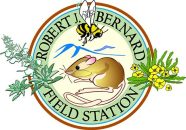Loesberg, Jenna (2018)
Preliminary examination of seed predator preference in California sage scrub: implications for ecological resistance.
Bachelor of Arts, Pomona College, Biology.
Advisors: Wallace Meyer & Diane Thomson.
Seed predation is a potential source of ecological resistance to invading plant species. While granivory has been shown to affect vegetation abundance and seed bank composition in arid and semi-arid ecosystems, it is understudied in endangered California sage scrub habitat, which is threatened by invasions of Bromus spp. and mustards. This study used exclusion experiments with video observation to determine the preference of granivore taxa (ants, rodents, and birds) for native, non-native, and different sized seeds, to preliminarily assess how seed predators may impact plant community composition. I found that community-wide, granivores preferred the invasive mustard seed, Brassica nigra, and avoided the large seeded native shrub Encelia californica. Birds in particular avoided Bromus rubens, an invasive grass. Consistent with studies in chaparral but contrary to studies in deserts, birds, namely Melozone crissalis, were dominant granivores while ants and rodents removed very few seeds. However, predation by different taxa may vary seasonally and I predict higher ant and mammal predation in the summer months. This study provides preliminary support that birds are important seed predators and may have the potential to limit invasions and provide ecological resistance to mustard plants in California sage scrub.
